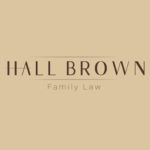This category can only be viewed by members.
Andrew Smith highlights the first reported decision in which the Pension Advisory Group report has impacted on the approach of the court to pension assets ‘In the first reported case to feature specific reference to the PAG report, the judge drew heavily on the opinions within that report, stating that it should “be treated as …
Continue reading "Pensions: Lessons to be learnt"
This post is only available to members.
Frederick Tatham analyses the unusual circumstances that led to a final order being set aside twice on the basis of material non-disclosure ‘An order will only be set aside for innocent non-disclosure if the court would have made a substantially different order if the relevant facts had been disclosed.’ In what is believed to be …
Continue reading "Non-disclosure: Double trouble"
This post is only available to members.
Ellen Walker discusses a case concerned with multiple income streams, the application of the sharing principle and the approach to top-up maintenance orders ‘The court does not use the statutory formula when awarding top-up child maintenance, but will look a range of factors, including the child’s needs.’ In CB v KB [2019], Mostyn J provided …
Continue reading "Non-matrimonial assets: Looking to the future"
This post is only available to members.
Nicola Caffery explains the basis on which the court in MM v NA was able to recognise a marriage which took place in a non-sovereign state ‘The law of England and Wales looks to the country in which the marriage took place to determine if the marriage is formally valid under the domestic law of …
Continue reading "Declarations of marital status: A valid exception"
This post is only available to members.
Lehna Gardiner and Greg Williams consider equitable accounting and in particular the circumstances in which an occupation rent may be payable and how it will be calculated ‘Where one party is excluded from the enjoyment of the property, it is likely that a claim to an occupation rent will arise in principle.’ Socrates is reputed …
Continue reading "TOLATA 1996: Making allowances"
This post is only available to members.
David Wilkinson reviews the court’s approach in a case involving conduct, multi-faceted litigation and a family business ‘It is arguable that a “predicament of real need” would be exactly what the husband would have been in had the final order penalised him in terms of his conduct.’ Cohen J’s judgment in TT v CDS [2019] …
Continue reading "Financial provision: Path of destruction"
This post is only available to members.
Ellie Foster highlights the ways in which overseas pensions may be addressed and the need to plan ahead for changes post-Brexit ‘Post-Brexit, unless parties can rely on the primary grounds of jurisdiction, enforcing foreign orders against pensions in this jurisdiction may be at best difficult or at worst impossible.’ The Pension Advisory Group (PAG) report …
Continue reading "International pensions: Running out of options"
This post is only available to members.
Abby Buckland examines a claim in tort between spouses and its relationship with financial remedy proceedings ‘In the presence of ongoing financial remedy proceedings, and the mandatory requirements under s25, MCA 1973, the husband’s claim was fundamentally incompatible with, and amounted to an improper collateral attack on, the court’s jurisdiction.’ In the first reported High …
Continue reading "Tort: Secrets and lies"
This post is only available to members.
Harry White discusses a controversial decision involving the approach to evidence of domestic abuse and procedural requirements in such cases ‘The judge’s conclusions were predicated upon a presumption that the mother should have physically resisted the father in order to establish her non-consent, which was plainly wrong.’ On 8 August 2019, HHJ Tolson QC made …
Continue reading "Domestic abuse: Fundamental failings"
This post is only available to members.
Matthew Taylor analyses a case involving an order obtained by fraudulent conduct and the steps that may be taken by the court in such cases ‘If fraud is established, the order must be set aside unless the court is satisfied that the fraud would not have influenced a reasonable person to enter into the order …
Continue reading "Set aside: Dealing with dishonesty"
This post is only available to members.







